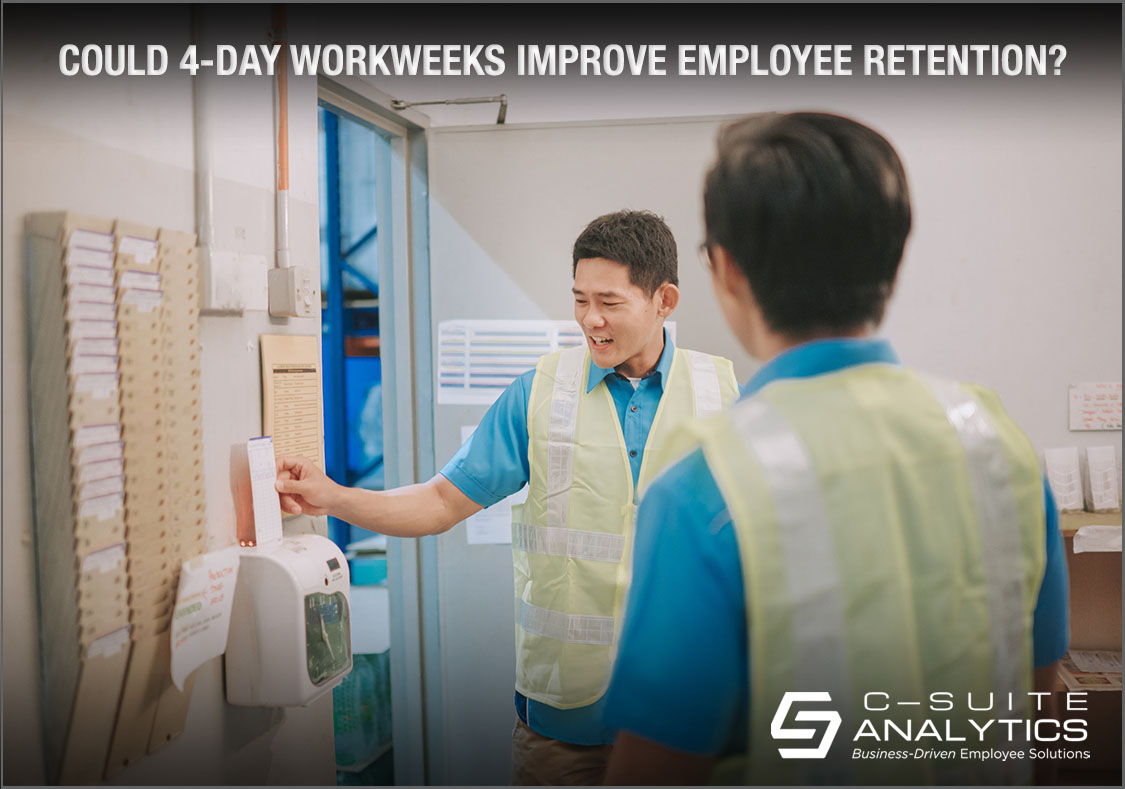Data shows a four-day workweek is popular with employees. On the company side, data suggests work satisfaction and productivity are up, recruiting is easier…and employee turnover is down. And during these days workforce shortages, every company is seeking a recruiting edge. Could this be “it”?
Connecting Thanksgiving, Poverty, and Stopping Absences (2018)

I spent part of Thanksgiving reading about poverty, recognizing the irony when most of us are noting our abundances. My reasons were my natural interest stemming from an undergraduate degree in sociology, along with a specific drill-down on how can companies better retain employees who come from such rough, disadvantaged backgrounds.
I grew up in a run-down neighborhood on the north side of Pittsburgh, one that will never be confused with gentrification…ever. We were officially lower middle class, and my wonderful parents made sure we had all we needed, but little else. Kids only know their immediate surroundings, so we never knew what we didn’t have.
But this wasn’t poverty. In their book titled Bridges Out of Poverty, authors Payne, DeVol, and Smith define poverty as “Extent to which an individual does without resources”. They then list nine categories of resources that go way beyond money: financial, emotional, mental, spiritual, physical, support systems, relationships/role models, knowledge of hidden rules, and coping strategies.
I kept searching for clues as to how a poverty-stricken person views work, clinging to the naïve notion that work = money = getting out of poverty, so therefore one would give all to their job as the ticket out. Then I read this:
Like many individuals who live in poverty, Sally doesn’t know the middle-class rules about not missing work or being late. She has brought her poverty-culture rules to work. They include relying on others to cover her workload while she takes care of her kids. The supervisor, operating from a middle-class orientation, is baffled by Sally’s chaotic lifestyle, a boyfriend whom Sally cannot rely upon, and the failure of Sally to find some consistent way to solve her childcare needs. Sally has held a number of jobs not the quality of this one. She never kept any of them very long.
So a big lesson for me is that a poverty-stricken person’s reality is worse than I thought, citing Sally’s lack of support systems and knowledge of hidden rules.
Our reality, though, is we face 3.7% national unemployment so many of us take chances on imperfect candidates hoping they are productive and stay. Our hearts hurt for people like Sally, yet our job requirements sometimes call more for rules than heart. While we cannot improve the lives of every Sally who comes looking for a job, we must recognize the only behaviors we can change are our own…so how can we do a better job of hiring and retaining poverty-stricken applicants like Sally?
Here are a few ideas, starting with pre-hire:
- Make even more clear your attendance and tardiness policies; say them, hand them out in writing, tell how many employees you terminated in recent months because of these policies
- Tell a story about an ex-employee who tried but failed to meet these policies due to complex life issues, withholding the employee’s name but providing as many details as you can
- Make clear the procedure for notifying if one will be absent or late, saying that notifying is required versus being a no-call-no-show
- Ask if the candidate has transportation for work, and follow up on specifics she offers to ask if those methods are reliable
- Ask the candidate’s confidence on a scale of 1-10 that she can achieve your attendance/tardiness policies for the first 90 days; ask her to remove herself from your applicant pool if she has any doubts she can get to work according to your requirements.
Then after hire, coach newly-hired employees who miss work as you can now ask more detailed questions. With very supportive words and tones, ask about back-up childcare, back-up transportation, and probe for other problems that cause employees to miss work or show up late. Help them identify solutions they might not have discovered on their own.
None of these ideas guarantee your new hire will consistently show up, but this last idea might help the most: change your exit reason for new hires who violated your attendance policy from “attendance” to “attendance/bad hire”.
I could offer many reasons why exit interviews are ineffective, and one of these is several exit reason categories provide no solutions and therefore no accountability. Think “better opportunity” as an example which provides no clear path for what could have been done to retain this employee, implying “we did the best we could”.
Changing “attendance” to “attendance/bad hire” makes clear that whoever was involved in the hiring decision took a bad risk. We should expect HR recruiters to screen for attendance with more detail than hiring managers…though some hiring managers might actually do better. Regardless, those who take risks based on a candidate’s past employment trends or answers to our questions are likely to think harder and decide better when they know they are accountable for the outcome.
Schedule a free one-on-one strategy session with our team and we will listen to your concerns, probe deeply to learn more about your workplace challenges and needs, and work together to find solutions to cut turnover and improve employee engagement. https://go.oncehub.com/TeamFinnegan



